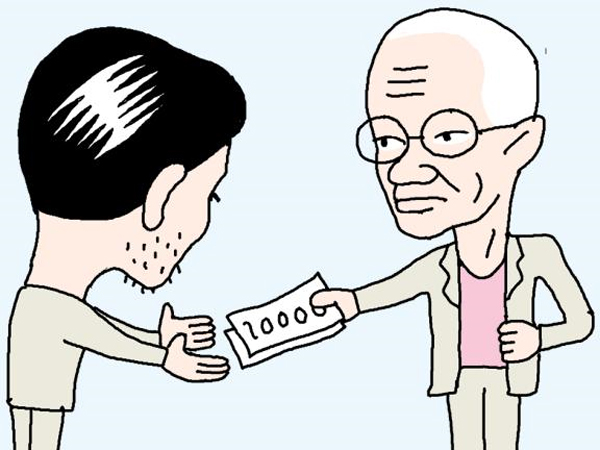많은 젊은이가 젊음을 만끽하지 못하고 있다. 계속되는 세계적 경제 침체와 청년 실업 문제로(as a result of the continuing economic slump worldwide and the problem of youth unemployment) 초조·불안에 떨고(feel on edge) 있다. 인생 전성기(the prime of their lives)인 20~30대 나이가 공포와 자기 회의의 시기(a time of panic and self-doubt)가 되고 있다.

실제로 18~30세의 유키 세대는 부모들에게 막대한 금전적 부담을 안기고 있다(impose a huge financial strain on their parents). 아직도 어머니에게 자신의 빨래를 하게 하고 식사 준비를 하게 한다(have their mothers do their laundry and cook their meals). 많은 어른 아이(many young adults)가 불확실한 금전 사정 또는 직업 전망 때문에(because of doubtful finances or career prospects) 부모의 따스한 품을 떠나려 하지 않는다(be reluctant to leave their parents’ warm embrace).
문제는 집을 떠난 후에도 손을 내미는(hold their hands out) 키덜트가 많다는 것이다. 세탁기 값을 내주고(pay for a washing machine), 각종 고지서 요금을 납부해주는가(cover all kinds of household bills) 하면, 먹을거리 구입 비용이나 융자금 상환까지 도와줘야(help with the cost of food or paying down loans) 한다.
이보다 더 심각한 문제는 독립해나갔던 자녀가 부모 집으로 되돌아 들어오는(move back in with their parents) 현상. 취업을 하지 못하거나 수입이 적어 다시 부모 품으로 되돌아오는 유키들이 늘어나고 있다는 사실이다. 이 ‘부메랑 세대(boomerang generation)’로 인해 부모 노릇 하기는 더욱 버거워졌다. 이젠 본인들 두 사람 노후뿐 아니라 유키·부메랑 세대 자녀를 포함한 모든 가족의 금전적 미래를 위해 돈을 모으지(save money for the whole family’s financial future including their Yuckies) 않으면 안 되게 됐다.
☞ http://xray-delta.com/2012/02/23/yuckies-young-unwitting-costly-kids/